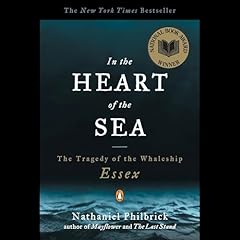
An Antarctic Mystery; or, The Sphinx of the Ice Fields
A Sequel to Edgar Allan Poe's 'The Narrative of Arthur Gordon Pym'
No se pudo agregar al carrito
Add to Cart failed.
Error al Agregar a Lista de Deseos.
Error al eliminar de la lista de deseos.
Error al añadir a tu biblioteca
Error al seguir el podcast
Error al dejar de seguir el podcast
 Exclusivo para miembros Prime: ¿Nuevo en Audible? Obtén 2 audiolibros gratis con tu prueba.
Exclusivo para miembros Prime: ¿Nuevo en Audible? Obtén 2 audiolibros gratis con tu prueba.Compra ahora por $19.95
-
Narrado por:
-
Tim Gerard Reynolds
During his twilight years, the French author Jules Verne (1828-1905) wrote two original sequels to books that had fired his own youthful imagination but which he felt to be incomplete: Johann Wyss's Swiss Family Robinson and Edgar Allan Poe's The Narrative of Arthur Gordon Pym of Nantucket.
Arthur Gordon Pym (1845) was only one of many Poe stories which Verne admired; no other single author had more impact on his writing. Verne acknowledged this debt in his only major piece of literary criticism, a detailed 1864 article entitled "Edgard [sic] Poe and His Work".
Poe (1809-1849) was just emerging on the French literary scene in translation as Verne was writing his first plays and short stories. Verne was familiar with a broad range of Poe's works, the well-remembered stories as well as many that are obscure today. What is to be admired in Poe, Verne wrote, "are the novelties of his situations, the discussion of little-known facts, the observations of the unhealthy faculties of Mankind, the choice of subject-matter, the ever-strange personality of his characters, their nervous, sickly temperaments, their ways of expressing themselves by bizarre interjections. And yet, among all these improbabilities, exists at times a verisimilitude that grips the credulity of the reader."
This edition is a newly revised and modernized translation and features a new introduction by Brian Taves.
©2005 John Betancourt (P)2012 Audible, Inc.Los oyentes también disfrutaron:




















Yes, it’s period writing so there’s political incorrectness abounding though not I think ill-intended by the author. With that said:
It’s a survival and adventure on the high seas novel with some early, basic science fiction thrown in. It’s my first Verne, and he’s a beautiful writer.
But to any and all who, like me, hoped for a little more “wonder” and sensationalism and spectacle along the lines of how Edgar Allen Poe finished (and left utterly hanging) his Narrative of Arthur Gordon Pym, of which Verne’s Antarctic Mystery is a direct sequel, you will be sorely disappointed. There is an explanation of sorts, there is a resolution, Verne even fills in to the best of his ability the bizarre dog character plot hole left by Poe, but it is not the wondrous story I had hoped for after being tantalized by the signs of Ancient Ethiopians in Poe’s Pym and the giant glorious snow-swept Sphinx of Verne’s Antarctic Mystery cover art.
I’m glad I read it. It was good, and I was 100% invested in the characters. But I was disappointed in the story itself.
Both Wonder-full and Also Not
Se ha producido un error. Vuelve a intentarlo dentro de unos minutos.
Good, but not all of Verne
Se ha producido un error. Vuelve a intentarlo dentro de unos minutos.
An homage to Poe and a sequel to his novel
Se ha producido un error. Vuelve a intentarlo dentro de unos minutos.
An amazing sequel carrying on the work a legendary author
Se ha producido un error. Vuelve a intentarlo dentro de unos minutos.
A Great Example of the Writing of the Period
Se ha producido un error. Vuelve a intentarlo dentro de unos minutos.


